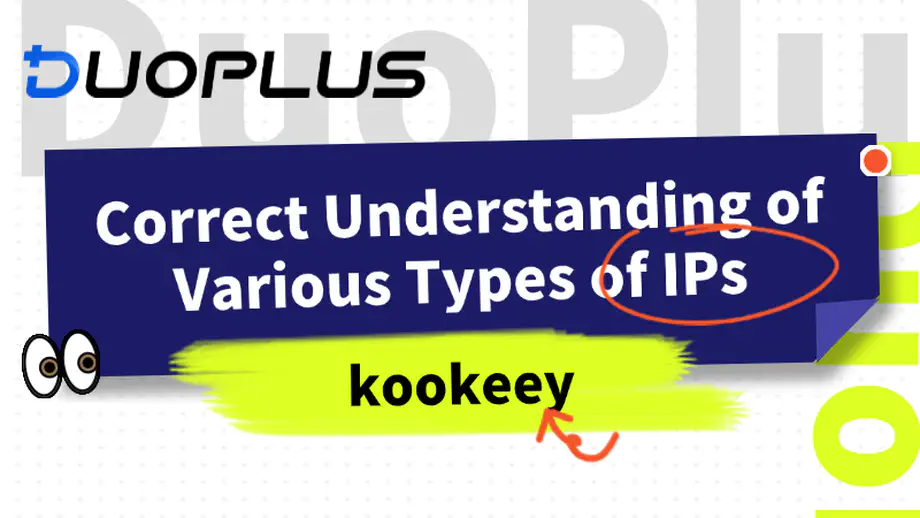
Deep Dive into TikTok GMV MAX: The Surge of New Advertising Releases
What is TikTok’s GMV MAX? In the TikTok e-commerce landscape, GMV MAX is fundamentally transforming the rules of …

Table of Contents
Some users have asked in the background: What proxy should be chosen for TikTok operations? What proxy is needed for overseas e-commerce operations? Are static, static data center, and static residential separate products? What is the difference between static/dynamic proxies? Why is static residential proxy recommended?
As we all know, cross-border e-commerce cannot do without proxy IPs, which can help us maximize business efficiency and flexibility. However, most platforms currently have various identification mechanisms, and many novice users do not fully understand their needs, which affects their subsequent choice of proxy IP. Therefore, choosing the correct IP type becomes crucial. Today, let’s correctly understand the differences between these IPs and their uses!
“Proxy IPs are mainly divided into two categories: static and dynamic. Furthermore, static and dynamic can be subdivided into residential and data center (data center) proxies.”
Residential Static IP: Residential static IP refers to a fixed, unchanging real residential IP address. These IP addresses come from actual residential networks, can simulate user behavior and identity, have stronger real-person attributes, and provide higher authenticity and concealment. Suitable for scenarios that need to simulate real user behavior, such as social media operations, ad testing, market research, etc. Due to its high concealment, these IPs are less likely to be identified as proxy IPs, making them a popular choice for cross-border e-commerce operations.
Residential Dynamic IP: Residential dynamic IP refers to a variable IP address from a real residential network. These IP addresses can be dynamically adjusted according to needs, making account access behavior more like ordinary user access, thus less likely to be identified by the platform and more flexible. Suitable for applications that require concealment and flexibility, such as short-term access to social media, ad testing, market research, etc. They can effectively simulate real user behavior while avoiding being identified as proxy IPs.
Data Center (Data Center) Static IP: Data center static IP refers to a fixed IP address allocated in a data center. These IP addresses are stable and unchanging, with high reliability. They provide high speed and stability but have lower concealment. Suitable for applications that require long-term stable connections, such as long-term online ad placement, large-scale data processing tasks, etc. Because the IP address comes from the data center, it may be identified by the platform.
Data Center (Data Center) Dynamic IP: Data center dynamic IP refers to a variable IP address allocated in a data center. The IP address will be dynamically adjusted according to needs to adapt to different access requirements. Suitable for situations that require frequent IP changes, such as web crawling, automated voting, short-term platform access, etc. This type of IP has higher flexibility but still cannot avoid the possibility of being identified by the platform.
What proxy should be chosen for TikTok operations? The main operations for TikTok include video creation, live streaming, ad placement, etc. From the above analysis of different IPs, it is not difficult to see that the most suitable environment for TikTok operations is “static residential proxy.” Because static IP is more suitable for long-term use scenarios, and TikTok has a relatively strict detection mechanism, it requires an environment with stronger real-person attributes. If identified as proxy access, the account may be banned. Therefore, considering various factors, choosing a “static residential proxy” for operations is a wiser choice.
What proxy is needed for overseas e-commerce operations? The main operations for overseas e-commerce include market research and competition sharing, ad placement, TV platform operations, etc. From the above analysis of different IPs, it is not difficult to see that the most suitable environment for overseas e-commerce operations is “static residential proxy.” Because residential proxies are more suitable for market research, ad placement, and account management, providing more realistic user simulation operations, and for e-commerce operations that require long-term operations, “static residential proxy” is still recommended.
Are static, static data center, and static residential separate products? Proxy IPs are mainly divided into two categories: static and dynamic. Static IP, as the name suggests, means that the IP address is fixed and unchanging, so its stability is better. Once successfully allocated to a specific network device, it generally does not change. Static data center and static residential are specific types of static IPs, and their different sources determine their usage scenarios.
Usually, static residential IP is the type of network provided by telecom, Unicom, and other broadband services for households. The IP provided by this proxy belongs to the ISP, has stronger real-person attributes, and is no different from the access behavior of normal users, making it harder to be identified by the platform, thereby reducing the risk of account bans. Of course, regardless of the proxy IP, pursuing high quality and security, the prerequisite is to choose a reliable and professional proxy provider.
kookeey focuses on providing business-level static residential exclusive clean IPs, which can meet the needs of various business scenarios for proxy IPs, with 100% real-person attribute IPs. Whether your business is cross-border e-commerce or streaming media, it can perfectly assist you in achieving your business goals.
The recently launched dedicated entry customization feature is also very popular among users. “Dedicated Direct” builds a highly stable, low-latency network environment. For details, click » Major Update! kookeey’s New Feature: Entry Customization
Article content source: kookeey
DuoPlus Cloud Phone
Protect your multiple accounts from being banned

What is TikTok’s GMV MAX? In the TikTok e-commerce landscape, GMV MAX is fundamentally transforming the rules of …

What is DuoPlus? DuoPlus focuses on creating global social media marketing, TikTok, and dedicated multi-account cloud …
No need to purchase multiple real phones.
With DuoPlus, one person can operate numerous cloud phones and social media accounts from a single computer, driving traffic and boosting sales for you.
